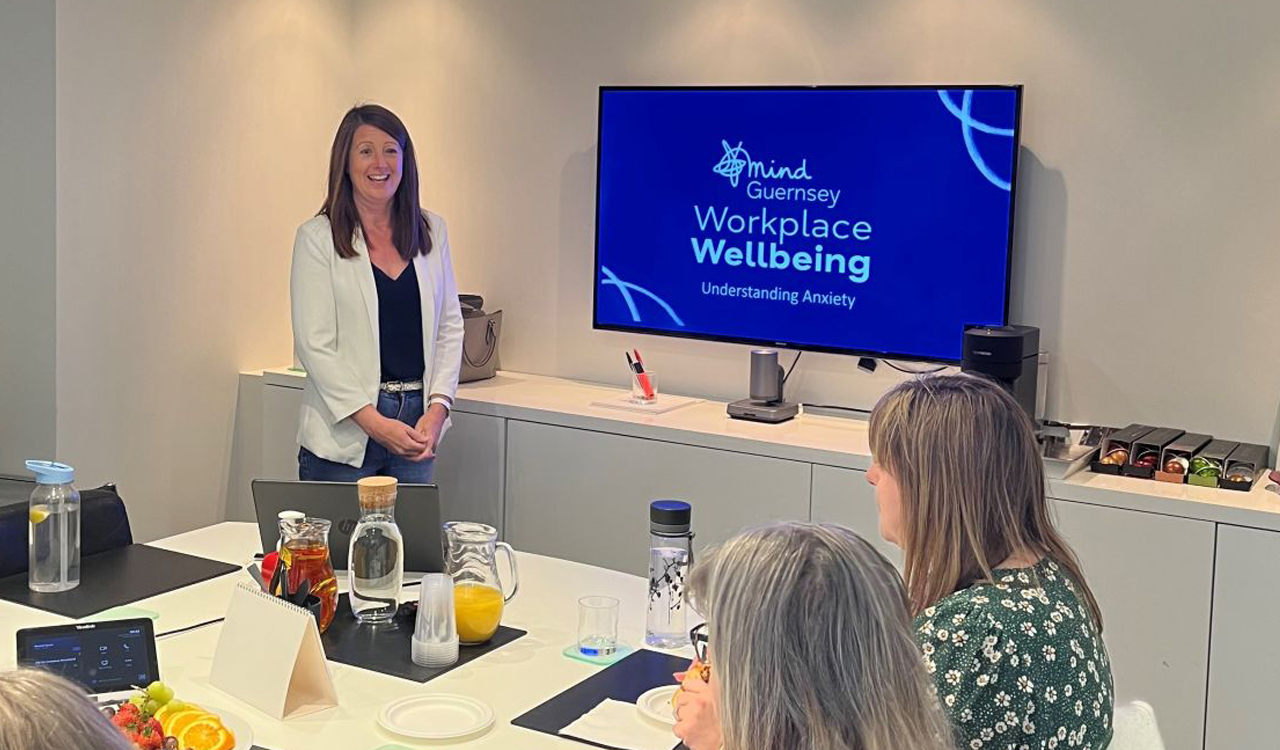


On World Mental Health Day, the World Health Organisation has put the focus firmly on employers and colleagues by highlighting the importance of mental health in the workplace. It's widely acknowledged that safe, healthy working environments can act as protective factors for mental health and that unhealthy conditions, including stigma, discrimination, and exposure to harassment, can pose significant risks to everyone.
With 60% of the global population in work, the WHO says urgent action is needed to protect and support mental health at work.
It says it is essential for governments, employers, organisations, and other stakeholders to work together to improve mental health at work.
One such stakeholder is Guernsey Mind - which is backing the WHO's efforts and highlighting this, on World Mental Health Day.
Mind agrees that, by investing in evidence-based approaches and interventions, we can all ensure that everyone has the opportunity to be healthy at work and in life.
Global statistics suggest that 60% of the world's entire population do some sort of work.
In Guernsey, data from March this year suggests that almost half of the island's population work - with 31,784 either employed or self employed.
Of that number - 47% were female and 53% male overall, but the split between the number of men and women working does vary through the ages.
It is important to support mental health as it brings so many benefits to the workplace – not just for staff, but to the organisation too. When asked about workplace stress, research from Mind in the UK found:
(ref: https://www.mind.org.uk/workplace/mental-health-at-work/taking-care-of-your-staff/)
Guernsey Mind’s Workplace Partnership initiative is based on improving mental health awareness and creating a supportive work environment, which is crucial for employee wellbeing and organisational success.

Pictured: Lisa Ingrouille.
Recognising early warning signs and addressing mental health issues proactively can foster a healthier and more productive workplace.
Anyone interested in finding out more can contact lisa.ingrouille@guernseymind.org.gg for further details.
Managers play a key role in maintaining mental health within the workplace.
Spotting the signs of stress or poor mental health at an early stage means managers can help nip problems in the bud before they escalate into a crisis or sickness absence.
Early signs of issues such as burnout and stress can include missed deadlines, irritability, withdrawal, indecision, distraction, increased substance use, frequent illnesses, and persistent tiredness.

Regular check-ins, promoting an open environment, and encouraging honest communication about mental health can make a significant difference. Managers should also model healthy behaviours themselves.
Regular work planning sessions, appraisals, and informal chats provide opportunities for employees to discuss their mental health. Managers should approach these interactions with openness, empathy, and genuine interest. Key practices include:
Frequent short absences can indicate underlying mental health issues. Identifying and addressing these patterns proactively encourages access to support.
Creating the right environment can ease the process of engaging people to talk about their mental health. Ensure confidentiality, meet in comfortable settings, and offer the presence of a trusted colleague. Occupational health professionals can also provide additional support.
Presenteeism (working while ill) affects individual wellbeing and overall productivity.
Contributing factors include managerial pressure, stress, financial difficulties, and a strong sense of responsibility. Addressing presenteeism involves creating a supportive environment and offering necessary support.
Proactive discussions, a positive wellbeing culture, and a range of support options can help all employees and contribute to a healthier, more productive workforce. Key actions include:
By integrating these practices, Guernsey Mind says workplaces can create a supportive culture that benefits individual employees and enhances the work environment as well as improving business and benefitting the wider community.
Further information
Comments
Comments on this story express the views of the commentator only, not Bailiwick Publishing. We are unable to guarantee the accuracy of any of those comments.